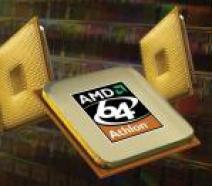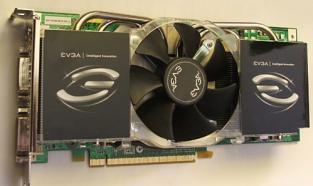OOPS! You forgot to upload swfobject.js ! You must upload this file for your form to work.
Toshiba managed to improve the performance of masked ROM
![]()
|
xtreview is your : Video card - cpu - memory - Hard drive - power supply unit source |
|
|||
|
|
||||
 Recommended : Free unlimited image hosting with image editor
Recommended : Free unlimited image hosting with image editor
|
POSTER: computer news || TOSHIBA MANAGED TO IMPROVE THE PERFORMANCE OF MASKED ROM |
DATE:2013-06-16 |
|
|
Often, computer technology required to store information that does not change during operation of the device. Examples of static data structures can serve as a program in microcontrollers, boot loaders to computers or coefficients of digital filters in the signal processor. The most effective in terms of implementation and the ultimate cost way to store such information are mask-only memories (MROM). mask ROM are the cheapest type semiconductor memory. However, the rapid development of computer technology not only requires storing an increasing amount of information, but also the possibility of quick access to it. Reducing the memory access requires an increase in the area of individual cells, which consequently deprives the mask ROM their main advantages. Managed to achieve a solution to the problem , Toshiba engineers have created a chip MROM with multilevel cell. Area multilevel cell area twice the standard, single-level, with the channel width of the transistor is increased threefold. Accordingly, these improvements have resulted in faster memory access, while the density of the chips is not changed as it became possible to record in a cell several bits of information. Toshiba is also able to reduce the variation in production by 42%. The new chips will be manufactured MROM on 40-nm technology. Their volume shipments will begin next year. | ||
|
|
||
|
xtreview is your : Video card - cpu - memory - Hard drive - power supply unit source |
|
|
|
|
||
|
Xtreview Support  N-Post:xxxx Xtreview Support        |
TOSHIBA MANAGED TO IMPROVE THE PERFORMANCE OF MASKED ROM |
| Please Feel Free to write any Comment; Thanks  |
The duo Skylake-X and GeForce GTX 1080 Ti managed to update the record of 3DMark Vantage Performance (2017-08-03)
Samsung managed to become the largest manufacturer of semiconductor products (2017-08-01)
Lucid Motors managed to overclock the electric car to 378 km-h (2017-07-11)
Micron managed to significantly increase revenue from the implementation of memory for graphics solutions (2017-06-30)
Ten-core Skylake-X managed to get to work at a frequency of 5 GHz with liquid cooling (2017-06-12)
The player managed to run Prey in less than twenty minutes (2017-05-10)
NVIDIA Titan Xp managed to overclock to 2232-10400 MHz with the help of a water block (2017-04-19)
HP Inc managed to again become the largest PC manufacturer (2017-04-12)
Chileans managed to overclock Ryzen 7 1800X to 5.2 GHz (2017-03-17)
Qualcomm and Meizu managed to reconcile (2017-01-01)
Tesla Motors managed to lure one of Microsoft HoloLens designers (2016-11-25)
Italian managed to take silver in the model standings GPUPI for CPU with the processor AMD FX-8350 (2016-11-20)
Polish enthusiast managed to keep the lead in the Cinebench R11.5 (2016-09-24)
Chinese experts managed to seize control over the management of sedan Tesla Model S (2016-09-21)
AMD managed to gain control over 34 percents of the discrete graphics market (2016-08-21)
Core i7-6700K managed to take second place in PiFast at a frequency of 6890 MHz (2016-08-02)
NVIDIA managed to make friends connectivity through DisplayPort of HTC Vive and Pascal (2016-07-15)
The German enthusiast managed to overclock the GeForce GTX 1080 to 2645 MHz on the core (2016-07-07)
NVIDIA managed to fix the fan in GeForce GTX 1080 Founders Edition (2016-06-10)
Dual GeForce GTX 970 managed to take silver in 3DMark Fire Strike (2016-06-06)
![]()
To figure out your best laptops .Welcome to XTreview.com. Here u can find a complete computer hardware guide and laptop rating .More than 500 reviews of modern PC to understand the basic architecture


7600gt review
7600gt is the middle card range.
We already benchmarked this video card and found that ...

 geforce 8800gtx and 8800gts
geforce 8800gtx and 8800gts  Xtreview software download Section
Xtreview software download Section  AMD TURION 64 X2 REVIEW
AMD TURION 64 X2 REVIEW  INTEL PENTIUM D 920 , INTEL PENTIUM D 930
INTEL PENTIUM D 920 , INTEL PENTIUM D 930  6800XT REVIEW
6800XT REVIEW  computer hardware REVIEW
computer hardware REVIEW  INTEL CONROE CORE DUO 2 REVIEW VS AMD AM2
INTEL CONROE CORE DUO 2 REVIEW VS AMD AM2  INTEL PENTIUM D 805 INTEL D805
INTEL PENTIUM D 805 INTEL D805  Free desktop wallpaper
Free desktop wallpaper  online fighting game
online fighting game  Xtreview price comparison center
Xtreview price comparison center Lastest 15 Reviews


Rss Feeds
Last News
- The new version of GPU-Z finally kills the belief in the miracle of Vega transformation
- The motherboard manufacturer confirms the characteristics of the processors Coffee Lake
- We are looking for copper coolers on NVIDIA Volta computing accelerators
- Unofficially about Intels plans to release 300-series chipset
- The Japanese representation of AMD offered monetary compensation to the first buyers of Ryzen Threadripper
- This year will not be released more than 45 million motherboards
- TSMC denies the presentation of charges from the antimonopoly authorities
- Radeon RX Vega 64 at frequencies 1802-1000 MHz updated the record GPUPI 1B
- AMD itself would like to believe that mobile processors Ryzen have already been released
- AMD Vega 20 will find application in accelerating computations
- Pre-orders for new iPhone start next week
- Radeon RX Vega 57, 58 and 59: the wonders of transformation
- ASML starts commercial delivery of EUV-scanners
- The older Skylake processors with a free multiplier are removed from production
- Meizu will release Android-smartphone based on Helio P40
- AMD Bristol Ridge processors are also available in American retail
- The fate of Toshiba Memory can be solved to the next environment
- duo GeForce GTX 1080 Ti in GPUPI 1B at frequencies of 2480-10320 MHz
- New Kentsfield overclocking record up to 5204 MHz
- Lenovo released Android-smartphone K8

HALO 3 HALO 3 - Final Fight!

PREY Prey is something you don t often see anymore: a totally unigue shooter experience.

computer news computer parts review Old Forum Downloads New Forum Login Join Articles terms Hardware blog Sitemap Get Freebies


